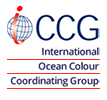Chair:
Dr. Robert Brewin
University of Exeter, UK
Email: r.brewin@exeter.ac.uk
Co-Chairs
Dr. Joaquim Goes
Columbia University, US
Email: jig@ldeo.columbia.edu
Dr. ZhongPing Lee
Xiamen University, China,
Email: zhongping.lee@umb.edu
Established: March 2023
- Virtual meeting (27 January 2025)
- Virtual meeting (3 October 2024)
- Kick off meeting (13 November 2023) minutes
- Working group proposal (February 2023)
Scientific and programmatic background and rationale
Increasing carbon dioxide (CO2) and other greenhouse gas (GHG) emissions are causing significant changes to our planet’s climate with cascading impacts on both natural and human systems. During 2008–2017, global anthropogenic carbon emissions increased every decade from an average of 3.1 Gt C/yr in the 1960s to 9.4 Gt C/yr today. The consequent increase in extreme events caused by the build-up of CO2 and other GHGs in our planet’s atmosphere, have prompted national, state, local governments, and international agencies, to accelerate plans and policies to reduce GHG emissions drastically and attain net neutral carbon emissions by 2100.
The oceans are huge sink for anthropogenic CO2, and an important means by which CO2 is stored in the oceans is via marine phytoplankton photosynthesis. Although a significant fraction of this newly produced organic carbon is remineralized as it sinks, the portion of organic matter that survives grazing and bacterial metabolism and is exported to the ocean floor, becomes a long term sink for anthropogenic CO2. In the absence of primary production and carbon export to the ocean floor, atmospheric CO2 would have been ~200 ppm higher than at present, raising average global temperatures by ~2 °C.
Despite the ocean’s critical role in balancing carbon between the ocean and atmosphere, the economic significance of the ecosystem service provided by phytoplankton photosynthesis is poorly represented in carbon policy and management narratives. While stocks and flows of carbon in the ocean have been identified and described in broad terms, there is large uncertainty in current estimates of primary production (PP). This has led to a great deal of uncertainty in future projections of atmospheric CO2. The 2019 IPCC report indicates that the oceans capacity to sequester atmospheric CO2 and the strength of the biological pump will diminish due to density stratification of the upper ocean, but this projection is also fraught with uncertainties. None of the IPCC projections address accuracy of current estimates of global PP, and there is no effort to understand and assess the scientific value of reducing their uncertainties, or to understand the socio-economic costs associated with a potential reduction in the global ocean’s carbon sequestration service.
The Working Group will discuss and evaluate new methods and novel manned and unmanned technologies for measuring PP at sea, and approaches designed to harness multi-spectral and hyperspectral ocean color datasets anticipated from new missions (e.g. PACE, GLIMR , Sentinels, EnMap, CHIME, EarthCARE). The group will also harness lessons learned from recent large multi-institutional and multi- disciplinary programs (e.g. EXPORTS, NAAMES, BICEP, MAPPS, POCO), long-term observational programs (e.g. HOT, BATs, AMT, CARIACO, LTER), and standardized protocols for developing field datasets, to improve the accuracy of satellite PP estimates.
Terms of Reference
- Compile a match-up database of concurrent and co-located in-situ primary production (PP) data and satellite ocean-color measurements and identify data gaps.
- Summarize the advantages and limitations of the various PP algorithms and identify pathways for improving PP estimates from satellites.
- Obtain ensemble estimates of global PP of the past two decades with the latest- revised/updated PP algorithms and satellite products.
- Provide a thorough/in-depth account on the sources/magnitude of uncertainties (building on IOCCG report 18 Uncertainties in Ocean Colour Remote Sensing) in satellite PP estimates and their economic value.
- Discuss potential new technologies for in-situ PP estimates (e.g., IOCCG report 11 Bio-Optical Sensors on Argo Floats), associated uncertainties as well as approaches for overcoming challenges.
- Provide recommendations and action for improving PP/biological pump remote sensing.
- Discuss and assess the socio-economic costs associated with inaccuracies of PP estimates.
- Prepare/publish a report on ocean PP from space within the IOCCG series.
Members
Shubha Sathyendranath (PML, UK)
Žarko Kovač (U. of Split, Croatia)
Xin Liu (Xiamen U., China)
Heather Bouman (U. of Oxford, UK)
Ryan Vandermeulen (NOAA, USA)
John Marra (CUNY, USA)
Tom Jackson (EUMETSAT, Germany)
Gemma Kulk (PML, UK)
Jinghui Wu (Columbia U, USA)
Chin-Chang Hung (National Sun Yat-sen U., Taiwan)
Michael Behrenfeld (Oregon State U., USA)
Toby Westberry (Oregon State U., USA)
David Antoine (U. Curtin, Australia)
Frédéric Mélin (EU Joint Research Centre, Italy)
Junwu Tang (Qingdao Marine Science and Technology Center, China)
Peng Chen (SIO, China)
Joji Ishizaka (JAMSTEC, Japan)
Mini Raman (ISRO, India)
Qiang Hao (SIO, China)


 The 6th International Ocean Colour Science (IOCS) meeting was held in Darmstadt, Germany from 1 – 4 December 2025, hosted by EUMETSAT and ESA. All meeting material is available is on the archive webpage.
The 6th International Ocean Colour Science (IOCS) meeting was held in Darmstadt, Germany from 1 – 4 December 2025, hosted by EUMETSAT and ESA. All meeting material is available is on the archive webpage.